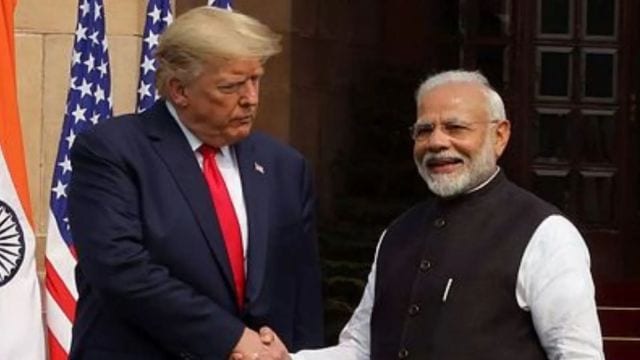
“The old world is dying. And the new world struggles to be born. Now is the time of monsters,” wrote the renowned Italian philosopher and politician Antonio Gramsci. It applies as much to the 2020s as to the 1930s, when Gramsci pitted his Marxist ideology against the Fascist power of Benito Mussolini. The old world that Gramsci saw dying was the result of the monstrous politics practised by leaders like Adolf Hitler and Mussolini, and even Joseph Stalin, who was also a Marxist. Others, like US President Franklin Roosevelt, through his silence, and British PM Neville Chamberlain, through his appeasement of Hitler in 1938, helped hasten the death of that world.
The chaos of the 1930s resulted in the outbreak of World War II and the birth of a new world order. Now, as that order, built on pillars like democracy, globalism and peace, crumbles, similar characters in different countries are causing great upheavals. Gramsci’s categorisation of such leaders as “monsters” may not be appropriate in the present context. Nevertheless, today’s wars and instability can be characterised in the same terms as those of Gramsci.
Just as the US’s refusal to join the League of Nations contributed to its collapse in the 1930s, the UN, created as the bedrock of the new order, is struggling due to a lack of financial support from Washington under Trump. Many countries see it as a redundant organisation unable to influence events.
China, in the meantime, is seen enthusiastically supporting that institution. It occupies various important positions in the body. Yet President Xi Jinping shows little interest in its most important annual event, the General Assembly, which he has rarely addressed. At the same time, China is actively building a new institutional framework for international cooperation through frameworks like the Belt and Road Initiative, Global Development Initiative, Global Security Initiative, and Global Civilisation Initiative. Completing the process of building a new order, Xi announced the formation of the Global Governance Initiative (GGI) in September this year, which aims to “reform and improve the international governance system”.
India should be alert to the consequences of these developments. The relationships it spent decades building seem to be coming to naught. Despite its best efforts through the “Neighbourhood First” policy, it was unable to build a stable and friendly neighbourhood. Destabilised polity in several of its neighbours is testing India’s foreign policy acumen. The US has once again tilted towards India’s archrival to the west, seduced by the promises of the Prime Minister and the Field Marshal. It may be naive to assume that China was unhappy with Pakistan’s growing proximity to the US. Over the past few decades, it invested heavily in that country’s political, military and civil infrastructure. Pakistan’s overtures, whether to the US or Saudi Arabia, would not have happened without the knowledge and consent of Beijing. In fact, China, as a policy, never prevents its friends from engaging with the US. It did not stop Kim Jong Un of North Korea from meeting Trump thrice in just 12 months during 2018-19.
Trump is eager to clinch a deal with Xi when the two leaders meet at the Asia Pacific Economic Cooperation (APEC) Forum later this month in South Korea. But he is showing no such hurry in resolving the standoff with India over tariffs. A breakthrough is anticipated at the East Asia Summit in Kuala Lumpur on October 26-27, where Trump and Prime Minister Narendra Modi may meet. However, trade talks between the two countries are unlikely to be concluded before the summit. It may take some more time before the tariffs conundrum is finally resolved. In the absence of a deal, the Indian side may see a Modi-Trump meeting as a futile exercise. Also, Trump is spending only October 26 in Kuala Lumpur and skipping the summit scheduled for the next day, leaving less scope for any detailed engagement between the two leaders.
Meanwhile, initiatives like the Quad and IMEC may also hit a roadblock given the emerging new equations in Asia. The US’s interest in the Quad appears low, with the White House remaining noncommittal about Trump visiting India to participate in the summit later this year. Some Western scholars suggested turning AUKUS — the Australia-UK-US military alliance — into JAUKUS by adding Japan, which would have been a death knell for the Quad. Fortunately, AUKUS itself is facing the challenge of US neglect and growing resentment in Australia over burgeoning defence budgets.
Some may argue that this turmoil is due to one man, Trump, and normalcy will return once he leaves office in 2028. Three years is a long time in international politics. Trumpian disruption is going to leave its imprint on the shape of the new order to come.
India responded to Trump’s tariff regime by standing firm and encouraging atmanirbharta (self-reliance). Modi delivered an important message two weeks ago, exhorting people to adopt swadeshi and promote indigenous industry.
While that is a commendable response, what India urgently needs is a comprehensive recalibration of its diplomatic options — both long- and short-term. Pragmatism should be the touchstone of its strategy and diplomacy, not romanticism. Henry Kissinger once warned that a country that demands moral perfection in its foreign policy would achieve neither perfection nor security. Diplomacy is, after all, the art of saying “nice doggie” until you can find a rock, as American comedian Will Rogers once quipped.
The writer, president, India Foundation, is with the BJP